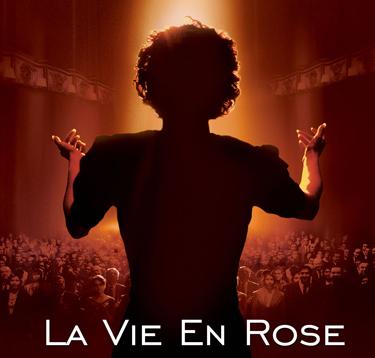Rose without a thorn
May 11, 2008
French chanteuse Edith Piaf lived a hard-knock life.
Abandoned by her parents, forced to live in a whorehouse, blinded for several years because of an inflammatory illness – and this was all before the age of nine. By the time she was in her teens, Piaf was singing in the streets of Paris to make money. Later she would be discovered by prominent French nightclub owner Louis Leplee, and the rest would be history.
The film “La Vie en Rose,” recently released on DVD, explores Piaf’s sometimes triumphant, but oftentimes tragic, life by taking it apart and putting it back together in an odd assortment of scenes that flash backward and forward and back again. No trace of coherency is to be found here and if you don’t know that much about this woman’s life to begin with, you will be struggling to catch up as the film jumps from Edith in her 40s, to Edith at the age of three, to Edith at the age of 35, to Edith at the age of nine and so on.
Still, Piaf was astonishingly talented and her life is the stuff that great cinematic storylines have revolved around for more than a century – two facts not to be lost on viewers even in such a fractured film as this.
From Piaf’s short life (she was only 47 when she died) there is a lot of material to choose from. But the film mainly focuses on her formative years being raised by prostitutes at her grandmother’s brothel and her later rise to fame as one of the greatest and most beloved singers France has ever produced. It touches on some details – Edith’s severe stage fright and frequent temper tantrums – but glosses over others, such as her equally severe drug and alcohol problem. The film alludes to the fact that she had many lovers, but spends most of its allotted romantic scene time on one relationship in particular: Piaf and Marcel Cerdan (Jean-Pierre Martins), who was a world boxing champion and a married man to boot. For Piaf this was certainly the most tragic relationship of her life. She loved him terribly but he was killed in a plane crash on his way to visit her.
Much of “La Vie en Rose” is devoted to staged renditions of actual concerts Piaf performed in at different times during her singing career. Though French actress Marion Cotillard is excellent as Piaf all throughout the film, she is particularly memorable in these scenes. Piaf’s original vocal recordings were used, but Cotillard fills up the rest with a haunting portrayal so reminiscent of the singer it’s almost scary. Cotillard’s performance garnered her several awards, including a recent Academy Award for Best Actress in a Leading Role. “La Vie en Rose” also won an Academy Award for Best Makeup, and rightly so. Cotillard is young and incredibly beautiful and it was quite a feat to turn her into the aged and sickly woman Piaf became toward the end of her life.
Though not a perfect representation of Piaf, “La Vie en Rose” is well worth watching. If nothing else, it is an admirable testament to a woman who embodied one very important concept: Great things often come in small packages. Piaf was under five feet tall, but that vibrato of hers could fill up a room.



